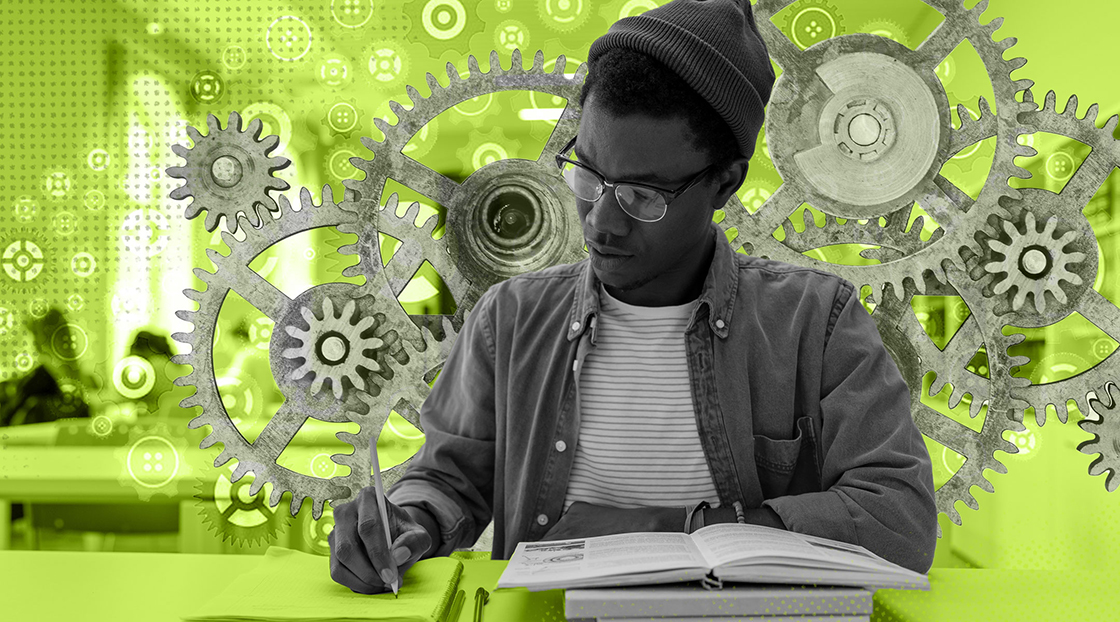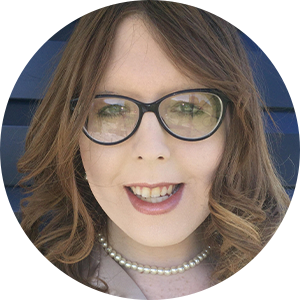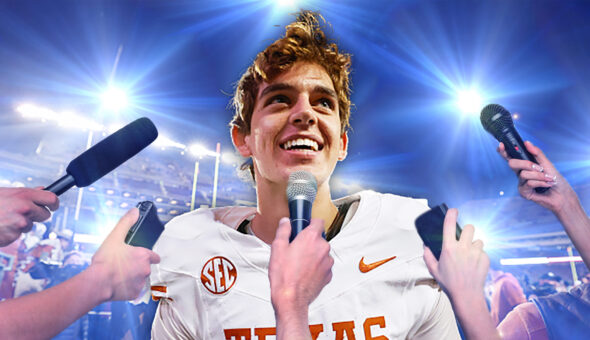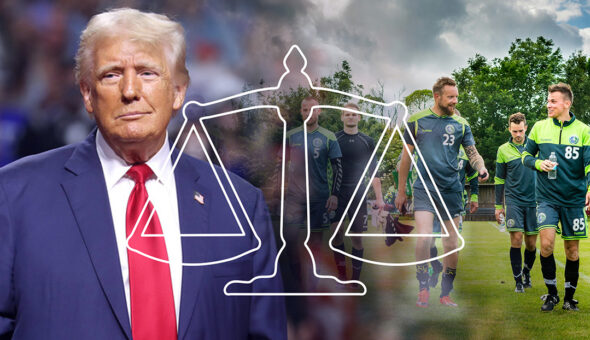Although college is often viewed in straightforward terms, its value for neurodivergent students encompasses more than traditional metrics. As such, the complexities of college life can present unique challenges for neurodivergent students compared to their neurotypical peers.
Luckily, many institutions have recognized that fact and have established programs to offer support. The Spectrum Support Program at the Rochester Institute of Technology in Rochester, New York, the Center of Autism and Neurodiversity at Drexel University in Philadelphia, Pennsylvania, and the Bridges to Adelphi Program at Adelphi University in Garden City, New York, are three such programs.
Rochester Institute of Technology
The Spectrum Support Program was established in 2008. Structured as one-on-one support with just 12 students, the program’s goal is to help students transition from high school to college through help with academic prioritization and planning.
The program is now run by eight staffers who serve 110 students. It works on a pay-for-service model in which students pay based on their enrolled level. For example, first-year students pay $2,500 per semester. There are also scholarships available for Pell-eligible students.
“We never want finances to be a barrier,” said Kendra Evans, director of the program. Even if a student isn’t enrolled in the program, they can still participate in three drop-ins per year, various social opportunities and the Neurodiverse Hiring Initiative.
Evans stressed that as institutions try to live up to their diversity, equity and inclusion value statements, they shouldn’t leave out neurodiverse students.
“These are students that are kind and loyal and sensitive and brilliant and have all of the requirements and skills to be in college,” she said. “It’s our job to make sure that they have access to the curriculum. Our job is to remove barriers and change the ableist culture.”
The number of neurodiverse students is growing, Evans added. A recent wellness survey at her institution found that 24% of undergraduate respondents identify as neurodivergent. The survey closely aligns with the 15-20% of the world’s population that exhibits some form of neurodivergence, as noted by the Division of Cancer Epidemiology & Genetics at the National Cancer Institute. Because the population is growing, Evans said, institutions need to lean into serving neurodiverse students to stay relevant.
Drexel University
Similarly, the Center of Autism and Neurodiversity was started as a small peer mentoring program in 2008 by a psychology professor. It was eventually put under the student life umbrella with little attention being paid to it until Dr. Amy Edwards was brought in to serve as the director in 2017.
Motivated by the fact that her oldest child is autistic and couldn’t find the type of support he needed when it was time for him to go to college, she set about expanding the center’s footprint, going from roughly 10 students in the beginning to 136 students today. The size of the staff has also grown to include an associate director and a couple of advisors.
Despite its growth, Edwards hasn’t had to market the center. Many students end up finding out about it through word of mouth, she said. The program is fee-based, but Edwards works with the Office of Vocational Rehabilitation to ensure students receive funding if they are registered with the program.
From an institutional perspective, the program has helped boost retention rates, Edwards explained.
Adelphi University
The Bridges to Adelphi Program at Adelphi University is another fee-based program, costing roughly $5,000 a semester; however, scholarships are available. It was started in 2007 through a grant but became a full university program in 2014.
Difficulty in Transitioning to College
The transition to college for neurodiverse students, Evans explained, is especially challenging because of the need for stronger support networks and executive functioning demands.
“The parents of autistic and neurodivergent students are varsity parents. They’ve really been the advocate for their child all through the K-12 system,” said Evans. “When you move to higher ed, parents can’t play the same role. Oftentimes, students haven’t had the opportunity to really self-advocate.”
The ability to advocate for oneself is a difficult skill to develop because many autistic students grew up having an IEP in place, which meant services were automatically activated for them, she noted. Alternatively, college students must apply for accommodation, and then activate it in each class.
“The two-step extra process takes a lot more executive functioning,” she said.
Learning how to manage their schedules is another challenge for autistic students. Even though students are only required to be in class for three hours per class per week, managing their out-of-class work requires a lot of planning.
“Figuring out when you’re going to do it, where you’re going to do it, how long you think it should take is an enormous shift, and takes practice and guidance,” Evans said.
Navigating their day-to-day needs, like food, sleep and laundry, is another significant undertaking for autistic students, especially those who grew up with parents who gave them a lot of structure, Evans said.
As the mother of an autistic child, Edwards agreed, noting that the transition can be anxiety-producing.
“You’re going from a school where bells were telling you when to go from class to class. You went home, and people told you when dinner was ready,” Edwards explained. “All of a sudden, it’s like the bottom drops out. You now have to figure out when to eat, when to shower, when to do your homework, when to go to class.”
Types of Support
To help students with their transitions, all three programs offer a range of support.
The Spectrum Support Program is structured around three levels.
- Level one offers one-on-one coaching for first-year students.
- Level two offers a short one-on-one meeting and group coaching for second-year students.
- Level three offers a weekly group to discuss co-op requirements and career planning for upper-class students.
“The transition from leaving home and living away is a big one,” Evans said of why the level one support is so intense. “The difference between high school and college is dramatic in terms of having to navigate your own support; you have to navigate your own schedule.”
For upperclassmen, the program realized it needed to offer more support to fulfill their co-op requirement.
“Hiring is still so socially nuanced that our students couldn’t finish that co-op requirement,” Evans said.
Employment Coaching and Support
As a result, the Neurodiverse Hiring Initiative was launched in 2018. It’s even expanding to work with alumni because the institute has found that, even though graduates are getting jobs, keeping and being satisfied with them is still quite challenging.
The initiative consists of three prongs: working with students to develop confidence and soft skills, working with employers so they don’t unintentionally exclude neurodivergent talent and finding ways to connect the talent and employers.
To help prepare students for the co-op, the Career Ready Boot Camp was established. The two-week camp brings students together to learn about the job search process, hear from employers about why neurodivergent talent is important to their workforce, refine their resumes and practice their interview skills.
Students also participate in two group projects, which help develop their back-of-the-house and front-of-the-house abilities. The first involves building a 3D printer. To develop their public-facing skills, they must deliver a project based on a “customer” request. Presentations are given about the deliverables.
Coaching on Executive Function Skills
The Center of Autism and Neurodiversity focuses on academics and developing executive functioning. Edwards describes the center’s mission as helping students navigate the new world in which they find themselves.
“We help them navigate a lot of these things, figuring out when to study and when to play video games,” she said. “In the beginning, we offer a lot of structure, a lot of support, but by senior year, hopefully, they just come back to say ‘hi.’”
First-year students receive academic coaching once a week, which involves sitting down with an advisor to review their classes, syllabi and books. Detailed calendars are created so students know what’s due and when they need to complete it.
Center staff also teach formal courses on things like living with a roommate, hygiene and public safety for first-year students and employment for upperclassmen.
Informal offerings, like study hours, which offer students a quiet space to work on their assignments, and social hours, which center around social activities, are also available to students.
“It’s meant to be a fading support,” Edwards stressed, adding that the program’s goal is to put itself out of business.
Individualized Coaching as Needed
The Bridges to Adelphi Program is highly individualized. Some students in the program excel academically but struggle socially, whereas it’s the other way around for other students.
“Over the years, we’ve continued to change and adapt our services because our biggest factor is providing individualized comprehensive support services to neurodivergent individuals in the academic, social, vocational and transitional realms,” said Director Damilatis-Kull. “Each student is different. A lot of what we do is understanding who the student is.”
She explained that the key tenant of the program is creating equity. Although those in the program are strong students, they need transitional support and guidance. Guiding them toward being able to advocate for themselves is the goal, Damilatis-Kull said.
Outside of the classroom, the program helps students learn how to benefit from unstructured environments through socialization and vocational opportunities. It even hosts 13 different social groups throughout the week that focus on a range of topics, such as Dungeons & Dragons and writing, that depend on specific student interests.
Social coaches help students create and meet their individualized social goals for things like meeting new friends, becoming more involved on campus and learning how to maintain a conversation.
“A lot of socialization falls in that gray area. Depending on each person, there’s a different set of social rules. It’s a matter of learning how to adapt based off the different environment and the different person they’re dealing with,” she said.
On the other hand, peer mentors, who are volunteer undergraduate students, serve as adjuncts to the social coaches. They meet with those in the program for an hour each week to help them acclimate to the campus. It’s up to the mentor and student to decide when and where they meet; they may meet for coffee one week, and then for a gym session the next week.
“They become excellent role models for our students. Some of our students end up eventually becoming student leaders, some through the peer mentor program, so we often see that full circle moment,” she said.
To prepare incoming freshmen, an optional two-week summer launch program is held. Throughout the two weeks, two professors co-teach a class, which Damilatis-Kull said helps students adjust to different teaching styles.
The program also offers Damilatis-Kull and her team the opportunity to get to know the students and prepare for the type of support they’ll need during their first semester. The university’s research has shown that students who participate in it end up having higher GPAs, lower rates of depression and anxiety and higher self-esteem in their first semester compared to those who opt out of the program.
Success Stories
In recent years, more immersive career exploration experiences have been added to the Neurodiverse Hiring Initiative. Every March, Evans takes a cohort of students to New York City to meet with employers.
As part of the experience, students learn how to navigate the city, including how the subway works. Instead of leading the students around, Evans lets the cohort figure out how to get around on their own. The experience, she said, helped one of the students who is sensory-sensitive realize he could live in the city on his own.
“It’s really to show them they can do this. Don’t rule it out before you know,” she said.
The hiring initiative also works with the institution’s career services office to bring employers to campus because traditional job fairs can be overstimulating for neurotypical students. “We changed the modality in how we were working with employers to connect them with students,” Evans said. “We modified the career fair to have virtual and or smaller in-person information sessions directly with the employers.”
Graduates of the initiative have gone on to work at employers such as Wells Fargo, Bank of America, Southwest Airlines, Jade Mountain Partners and Liberty Mutual.
“These are highly skilled individuals who bring a unique perspective,” Evans said of why neurodiverse students are hired.
Edwards is equally proud of her graduates, noting that some have top-secret Intelligence Community clearances, while others are pursuing doctorates at places like the University of California, Berkeley.
“We still have alumni come back. It’s good to know they learned things here that have helped them,” she said.









